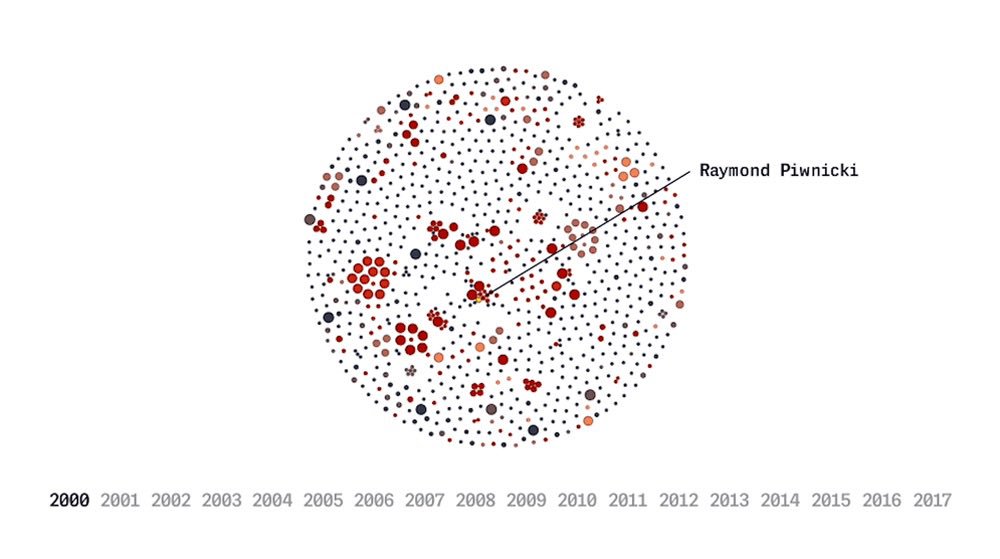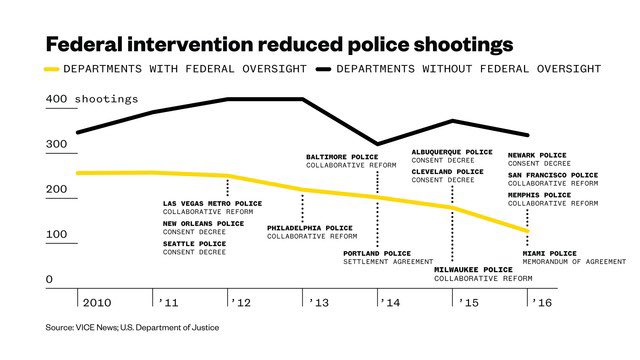Lesson 1. Everything you’ve probably heard is a lie. Specifically, the most discussed “solutions” to police violence have no evidence of effectiveness. For example, Body cams don’t reduce police violence: https://www.pnas.org/content/116/21/10329.short?rss=1">https://www.pnas.org/content/1...
2. There is no evidence that better police training programs or “implicit bias” training changes police behavior. The trainings vary in quality and rarely result in any accountability/changes in decision-making. Don’t put this at the top of your agenda. Next, what works...
3. More restrictive state and local policies governing police use of force are associated with significantly lower rates of police shootings/killings by police. This is backed by 30+ years of research. We identified specific policies that work here: http://useofforceproject.org"> http://useofforceproject.org
4. Demilitarization. Police depts that get more military weapons from the federal govt kill more people. You can stop that from happening through local and state policy. Montana (Red state) has gone the furthest on this. Your state can and should follow. https://journals.sagepub.com/doi/full/10.1177/2053168017712885">https://journals.sagepub.com/doi/full/...
5. Police Union Contracts. Every 4-6 years your police dept’s accountability system is re-negotiated. Purging misconduct records, reinstating fired officers, dept funding- it’s in the contract. Cities with worse contracts have higher police violence rates. http://checkthepolice.org"> http://checkthepolice.org
6. Predictive policing on the police. Yes, use the technology against them. Data on use of force, complaints & lawsuits can be used to identify officers who most likely to shoot someone next and prevent it from happening. Use the methodology to save lives. https://www.chicagotribune.com/news/criminal-justice/ct-predicting-bad-police-behavior-20190801-xumudeezmjalbbpmqwyvh26tdi-story.html">https://www.chicagotribune.com/news/crim...
7. Invest in alternatives to police as crime prevention strategies. Every 10 additional organizations in a city:
- Reduces the murder rate by 9%
- Reduces violent crime rate by 6%
- Reduces property crime rate by 4%
The Research: https://journals.sagepub.com/doi/abs/10.1177/0003122417736289">https://journals.sagepub.com/doi/abs/1...
- Reduces the murder rate by 9%
- Reduces violent crime rate by 6%
- Reduces property crime rate by 4%
The Research: https://journals.sagepub.com/doi/abs/10.1177/0003122417736289">https://journals.sagepub.com/doi/abs/1...
8. Establish non-police alternatives to 911 calls involving people with mental illness. For example, 1 in 5 of the 911 calls in Eugene, OR are diverted to mental health first responders instead of police to respond. A success being scaled in Portland. https://www.wsj.com/articles/when-mental-health-experts-not-police-are-the-first-responders-1543071600">https://www.wsj.com/articles/...
9. Resource the Department of Justice (after the current president is voted out) to initiate more investigations of police departments. Departments that receive federal intervention have 25-30% fewer police shootings than those that do not. https://www.vice.com/en_us/article/kznagw/jeff-sessions-is-walking-away-from-the-best-way-to-reduce-police-shootings">https://www.vice.com/en_us/art...
10. Know change is not only possible, it’s already happened in some places. Oakland police shot 8 people on avg each year 5 yrs ago and, after these interventions were implemented, they had 0 shootings this yr, 1 last yr (the officers were fired) and 0 the yr before. Lives saved.
11. Finally, we’ve catalogued an extensive range of research studies and other information detailing potential solutions to police violence at http://joincampaignzero.org/research ">https://joincampaignzero.org/research&...
12. And if you don’t have time to read the research right now, we’ve presented most of this research in rapid succession in this video: https://www.youtube.com/watch?v=1niaq51Z2Uw">https://www.youtube.com/watch...
In order to establish these findings we had to:
1. Build the most comprehensive database of police violence in the US
2. Conduct analyses of police use of force policies and union contracts in the 100 largest US cities
3. Track every state policing bill passed in the past 5 years
1. Build the most comprehensive database of police violence in the US
2. Conduct analyses of police use of force policies and union contracts in the 100 largest US cities
3. Track every state policing bill passed in the past 5 years
4. Track every research study published on the subject over the past five years and evaluate for quality
5. Meticulously catalogue the findings so they can be broadly accessible
And all that with little to no funding. Next up: evaluating the 1,000 largest police depts in the US.
5. Meticulously catalogue the findings so they can be broadly accessible
And all that with little to no funding. Next up: evaluating the 1,000 largest police depts in the US.
Stay tuned.  https://abs.twimg.com/emoji/v2/... draggable="false" alt="✌🏾" title="Victory hand (medium dark skin tone)" aria-label="Emoji: Victory hand (medium dark skin tone)">
https://abs.twimg.com/emoji/v2/... draggable="false" alt="✌🏾" title="Victory hand (medium dark skin tone)" aria-label="Emoji: Victory hand (medium dark skin tone)">

 Read on Twitter
Read on Twitter



